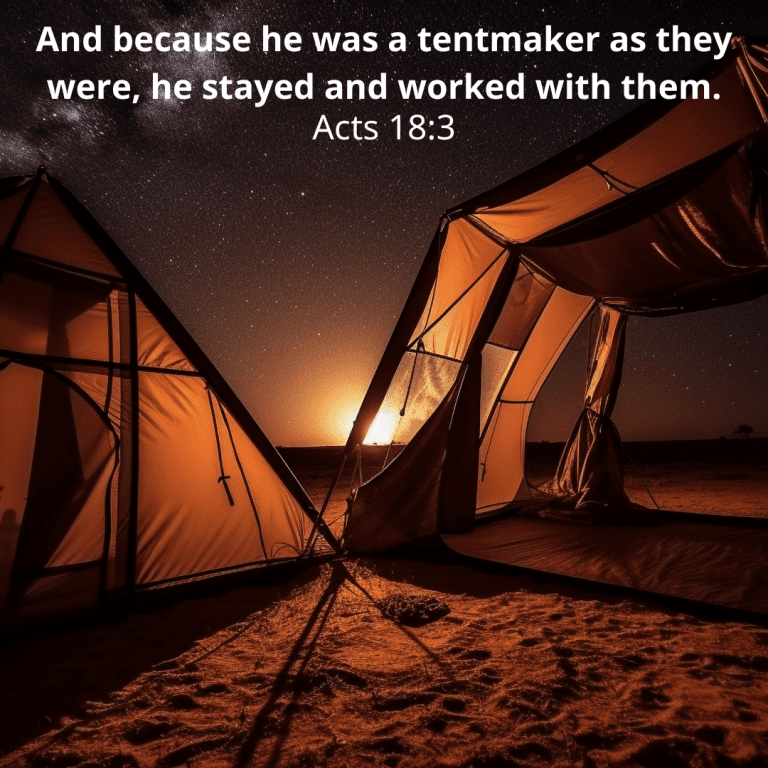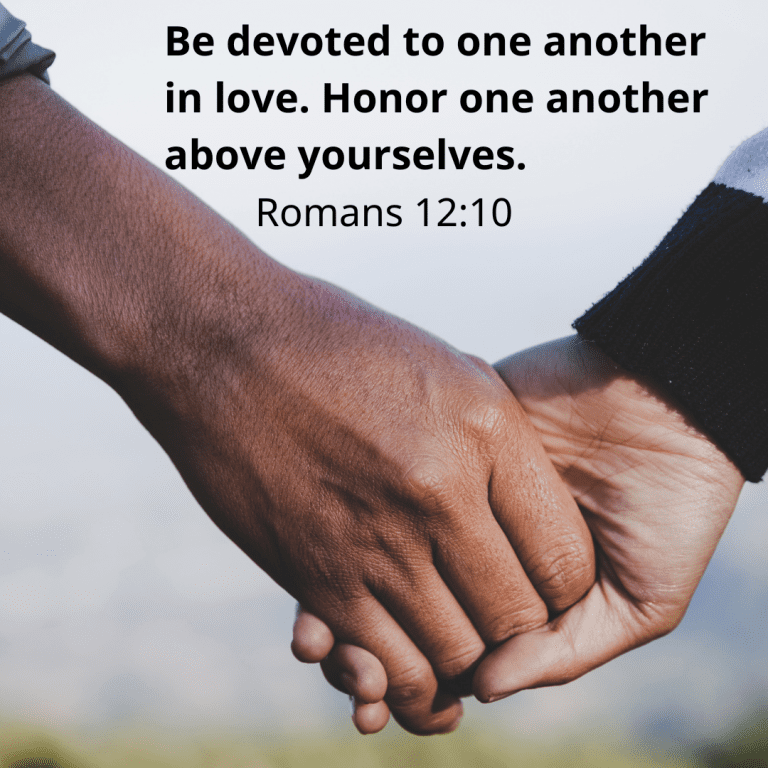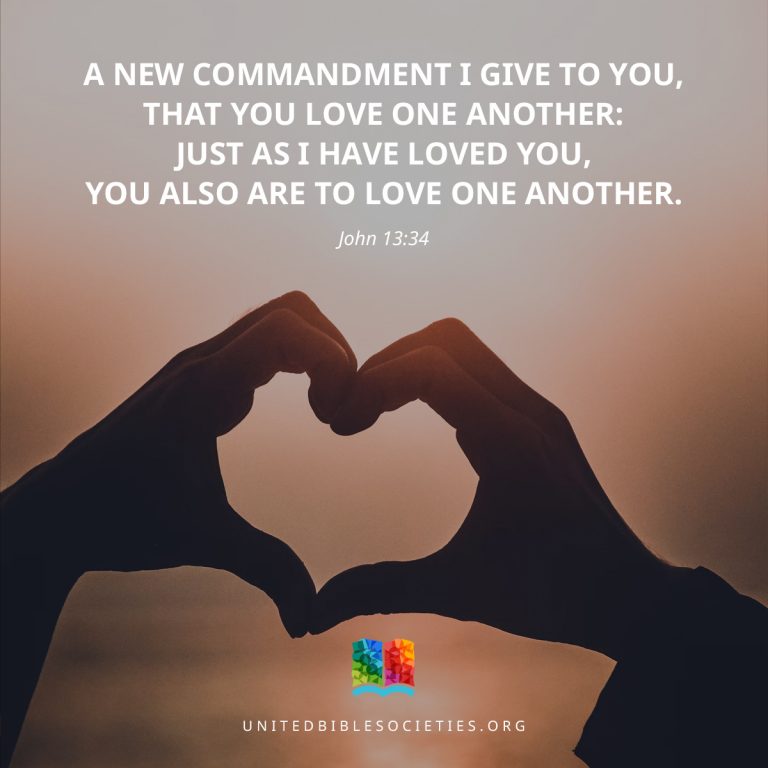The Example of Abraham
1 Well then, what can we say about our ancestor Abraham? 2 If he became acceptable to God because of what he did, then he would have something to brag about. But he would never be able to brag about it to God. 3 The Scriptures say, “God accepted Abraham because Abraham had faith in him.”
4 Money paid to workers isn't a gift. It is something they earn by working. 5 But you cannot make God accept you because of something you do. God accepts sinners only because they have faith in him. 6 In the Scriptures David talks about the blessings that come to people who are acceptable to God, even though they don't do anything to deserve these blessings. David says,
7-8 “What a blessing
when God forgives our sins
and our evil deeds.
What a blessing
when the Lord erases our sins
from his book.”
9 Are these blessings meant for circumcised people or for those who are not circumcised? Well, the Scriptures say that God accepted Abraham because Abraham had faith in him. 10 But when did this happen? Was it before or after Abraham was circumcised? Of course, it was before.
11 Abraham let himself be circumcised to show he had been accepted because of his faith even before he was circumcised. This makes Abraham the father of all who are acceptable to God because of their faith, even though they are not circumcised. 12 This also makes Abraham the father of everyone who is circumcised and has faith in God, as Abraham did before he was circumcised.
The Promise Is for All Who Have Faith
13 God promised Abraham and his descendants that he would give them the world. This promise wasn't made because Abraham had obeyed a law, but because his faith in God made him acceptable. 14 If Abraham and his descendants were given this promise because they had obeyed a law, then faith would mean nothing, and the promise would be worthless.
15 God becomes angry when his Law is broken. But where there isn't a law, it cannot be broken. 16 Everything depends on having faith in God, so that God's promise is assured by his gift of undeserved grace. This promise isn't only for Abraham's descendants who have the Law. It is for all who are Abraham's descendants because they have faith, just as he did. Abraham is the ancestor of us all. 17 The Scriptures say that Abraham would become the ancestor of many nations. This promise was made to Abraham because he had faith in God, who raises the dead to life and creates new things.
18 God promised Abraham a lot of descendants. And when it all seemed hopeless, Abraham still had faith in God and became the ancestor of many nations. 19 Abraham's faith never became weak, not even when he was nearly 100 years old. He knew he was almost dead and that his wife Sarah could not have children. 20 But Abraham never doubted or questioned God's promise. His faith made him strong, and he gave all the credit to God.
21 Abraham was certain that God could do what he had promised. 22 So God accepted him, 23 just as we read in the Scriptures. But these words were not written only for Abraham. 24 They were written for us, since we will also be accepted because of our faith in God, who raised our Lord Jesus to life. 25 God gave Jesus to die for our sins, and he raised him to life, so that we would be made acceptable to God.
Ṯǝmminǝ ṯǝthi Ibraahiim.
1 Nǝ ŋirṯaŋ ŋinḏirsi eṯhisi andasi ŋǝthi Ibraahiim kwir kwugwurnǝ kwǝri ŋiɽaŋal-ŋi ŋǝthi aŋna? 2 Na mǝ Ibraahiim suuɽunni ŋothɽor-ŋi, nɔŋwɔni kwǝthi lɔɽɔjɔ lǝthi-li ǝllinǝthǝ, laakin kiyǝnǝ yǝthi Allah tǝ bǝri. 3 Nǝ ŋǝthi Kiṯaab Kirllinǝlɔ ter ŋaari tha? “Nǝ Ibraahiim ǝmminci Allah mindaŋ nǝrsi ruusici ŋirllalɔ.” 4 Ŋgwa kwǝṯi akkɔ ŋothɽor ǝṯireere ruusici ɔjra wuuŋwun kaka haḏiiyyǝ mac, laakin kaka ŋgwa kwǝthi ŋothɽor ŋuuŋun. 5 Nǝ ŋgwa kwiti kwǝṯi akkɔ ŋothɽor mac, laakin ǝṯɔŋw allatha ŋgwa ṯɔgwor naana kwǝṯi suuɽi ŋgwa kwiti kwǝthi ṯǝmminǝ mac, ǝṯi ṯǝmminǝ ṯuuŋwun oro ṯimǝ ruusi ŋunduŋw kwirllalɔ. 6 Ḏaawḏ tok nɔŋwsi andasi ŋǝthi ṯɔrtanna ṯǝthi ŋgwa kwɔmǝ Allah ruusi kwirllalɔ, ŋiti ŋir ŋǝthi ŋothɽor mac kaka naarɔ-ŋgwɔŋw:
7 “Lɔrtanni kila limǝrsi fivrici ŋikiyaŋi ŋeeŋen kithaay, nǝ
kila limǝrsi kwuɽubǝci ŋikiyaŋi-lɔ.
8 Kwɔrtanni ŋgwa kwiti kwinḏi Kweeleny ethi iiɽǝci ŋikiyaŋi
ŋuuŋun mac.”
9 E-ta ṯɔrtanna kɔthɔ ṯandisar ṯǝni ṯǝthi kila luuɽunnǝ ṯɔɽɔk-ga? Alla ṯǝthi kila tok liti limǝ uɽunni mac? A kwaarir-paŋw, ṯǝmminǝ-thi nǝr ruusi Ibraahiim-ŋwɔ kwirllalɔ. 10 Nǝ ṯimǝr ruusici ṯuuŋwun aŋgwɔrɔ? Kerreny kwirii alla kwaathan-gi kinaŋw mɔŋw uɽunni rac? Ŋiti ŋǝniŋw kwaathan-gi mac, laakin kerreny niti nuuɽunnǝ-ŋgwɔ kinnǝni mac. 11 Nɔŋw aavi ṯuuɽunnǝ ṯir kaka @alaama, ya khiṯim kǝthi ŋirllalɔ ŋǝthi-ŋwsi ṯǝmminǝ-thi kinaŋw a-naanɔŋw-tǝ kinnǝni kwiti kwuuɽunnǝ mac. Kaka ninḏir-gwɔ ethi ruusi ŋunduŋw papa kwǝthi kila tatap linḏi ethi ǝmmini, liti luɽuthirsi kinnǝni mac, kila limǝrsi ruusi lirllalɔ. 12 Nɔŋworo papa tok kwǝthi kila luuɽunnǝ, nǝ nǝreere uɽunni dak mac, laakin nǝr rɔɔmi ṯǝmminǝ ṯǝthi papa kwǝri kwǝni Ibraahim kerreny niti nuuɽunnǝ-ŋgwɔ kinnǝni mac. Wa@ḏ wǝṯi ǝvinǝ ṯǝmminǝ-thi.
13 Wa@ḏ wa wigittathicar-yi Ibraahiim-ŋwɔsi ŋwɔɔla-ŋi ŋwuuŋwun, ethi ṯurmun oro ṯeeŋen, nɔŋweere iila ŋiɽaŋal-ŋi ŋǝthi Sherii@a mac, laakin nɔŋwiila ŋirllalɔ-ŋi ŋǝthi ṯǝmminǝ. 14 Na mǝ ŋgwa kwaari-gi Allah wa@ḏa oro kwinḏiŋw ethisi inḏǝthǝ kila lǝṯi iinyici Sherii@a naana, e-ta ǝtǝpǝ ṯǝmminǝ ṯǝthi kwizigwunǝŋ orolɔŋw domony, mindaŋ a wa@ḏ wǝthi Allah ere ǝthi faayitha-na kweere kwokwony mac. 15 Sherii@a kwǝni-pǝ kwǝṯi aava ŋarriny ŋǝthi Allah; laakin kǝzir witi wǝṯi-gwɔ Sherii@a ere naani mac tǝ, ǝṯi ṯakka ṯaay pir ere naani tok mac. 16 Nǝṯǝ sǝbǝb oro ŋgwɔ mindaŋ ǝṯi wa@ḏ iila ṯǝmminǝ-thi, mindaŋ mǝ wa@ḏ oro wǝthi ne@ma kaka haḏiiyyǝ wǝthi Allah, ki-ŋwɔɔla-na tatap ŋwɔthi Ibraahim, nǝreere oro kila dak mac lǝṯi iinyici Sherii@a naana, laakin nǝroro kila tok limǝ ǝmmini kaka Ibraahiim-ŋwɔ, kwir papa kwǝri tatap. 17 Kaka nɔlɔɔthɔnar-gwɔ, ŋaarɔŋw, “Nyii kwɔmǝ-ŋǝ ruusi papa kwǝthi lizi luuru.” Kiyǝnǝ yǝthi Allah wǝmminicǝŋw, wa wǝṯisi inḏǝthǝ kila laayɔ ŋimiitha nǝ ǝṯɔŋw keṯṯe ŋgwa kwiti kwɔnaanɔ mac. 18 Nɔŋw ǝmmini ṯǝkkizǝ-thi kizǝn niti-vǝ ninaanɔ sǝbǝb kweere kinnǝni mac kwǝthi ṯǝkkizǝ-thi kizǝn, mindaŋ ethoro papa kwǝthi luuru; kaka nandicarsi-gwɔ ŋǝniŋw, “Ŋwɔɔla ŋwɔɔŋa ŋwinḏi-ṯǝ ethoroŋw.” 19 Nǝ ṯǝmminǝ ṯuuŋwun ere ajli mac ŋiɽaŋal-ŋi ŋǝthi aŋna wuuŋwun wumǝ rɔɔnyɔthisi, mɔŋgwɔ aadithi ethoro yithlǝyu ruɽi-ṯɔthni, ya kinaŋw naarɔŋw-ŋi fǝkirǝ ŋǝthi ŋwɔreny ŋwɔthi Saara ŋwɔmǝ rilli ŋelŋe. 20 Nɔŋweerc oro rɔgwor-na riɽǝ-riɽǝn mac, kwiti kwaaralɔ tiŋgil-ṯiŋgil tok mac ŋiɽaŋal-ŋi ŋǝthi wa@ḏ wǝthi Allah, laakin nǝmǝ ṯǝmminǝ ṯuuŋwun peŋe rerrec, mindaŋ nɔŋw nii Allah-na. 21 Nɔŋw ǝmmini rerrem ethaarɔŋw, Allah wǝthi ŋɔma ethisi ǝrri ŋa ŋigittathɔŋw-ŋi. 22 Ŋindǝr-ṯǝ ŋɔ mindaŋ nǝr-mǝ “ruusici ṯǝmminǝ ṯuuŋwun ŋirllalɔ.” 23 Laakin ŋiɽaŋal ŋa ŋǝniŋw, “ruusici ṯǝmminǝ ṯuuŋwun ŋirllalɔ.” Nǝreere lothone ŋǝni ŋundu ṯɔɽɔk mac, 24 Laakin nǝrǝni nyiiŋǝ tok. Ŋǝrnyji ruusici ŋǝri tok kila lǝmminicǝ ŋgwa kwɔmǝ diiɽǝ Yǝcu-ŋw ki-ŋiɽany-na kwir Kweeleny kwǝri, 25 ŋgwa kwiɽinyithir ŋiɽaŋal-ŋi ŋǝthi ŋikiya ŋǝri, mindaŋ nɔŋw diiɽǝ ethi suuɽi nyuŋwsi.








